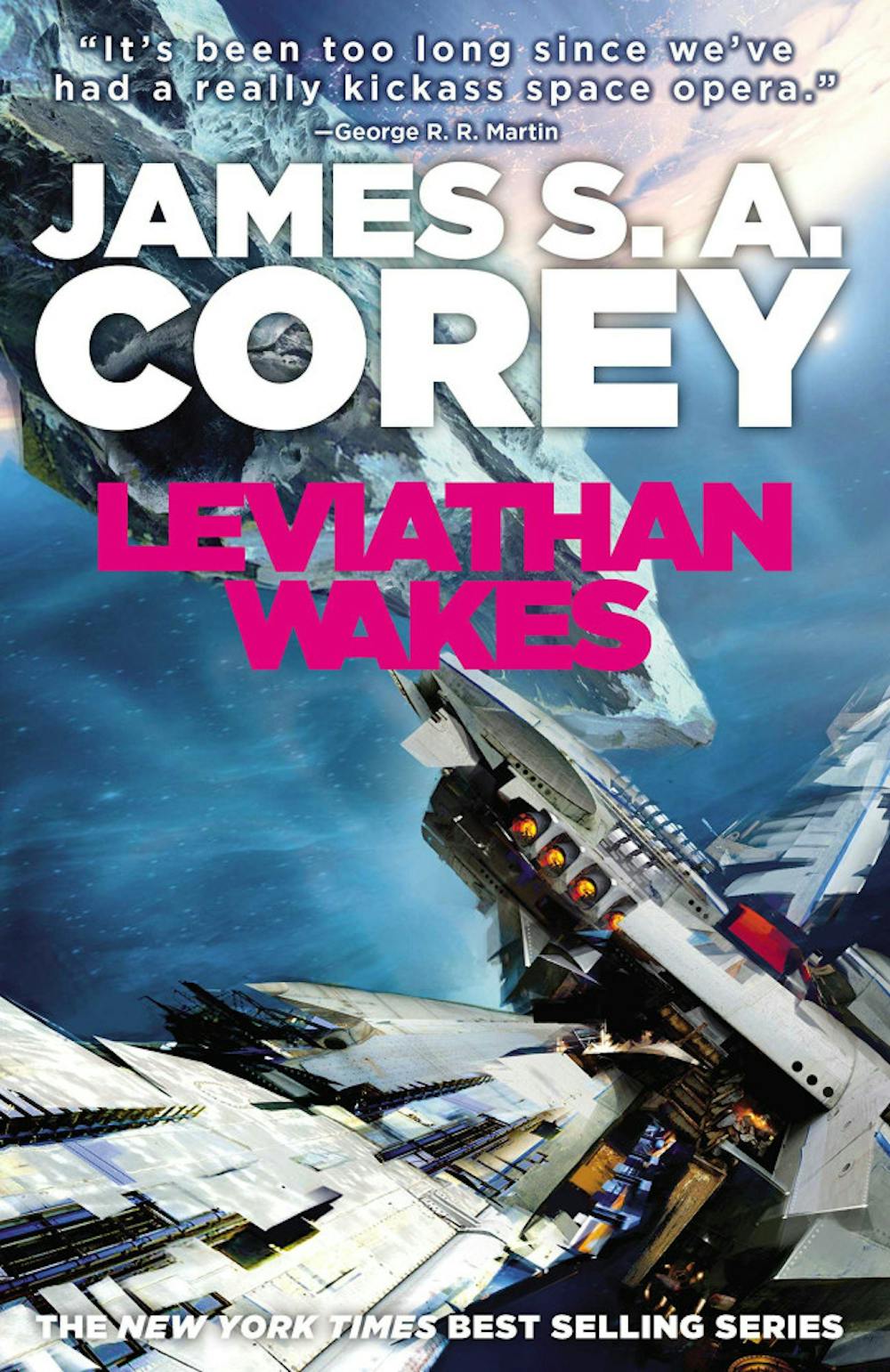I was first introduced to “The Expanse” by my boyfriend in the form of a TV show on SyFy. I liked it but didn’t want to get too invested. After I read the book I wanted to go back and watch the show to see how closely they stayed true, and I was amazed at the detail they kept. The book, however, does fill in many small details that can be hard to convey in a TV show.
“Leviathan Wakes,” book one of the “Expanse” series by James S. A. Corey, takes place 200 years in the future. The prologue introduces Julie, hiding on her ship from an unknown threat. After days of hiding, she comes out to find her abandoned ship, the Scopuli, eerily quiet. This leaves the reader wondering, “What happened to her; where did she go; who was she hiding from?”
The chapters from thereon go back and forth between James Holden and Josephus Miller. Holden is the XO of an ice miner ship, the Canturbury, which picks up a distress signal from the Scopuli. This is a catalyst that changes everything for Holden and his crewmates. Detective Miller, at the same time, is trying to find Juliette Mao, the daughter of a wealthy Mars family. Both men are well-rounded in their character, and the author doesn’t try to make them inherently good or evil, but rather crafts them as men who are doing what they think is best. Sometimes they make the right decisions, other times plans go awry, but the reader always knows the reasons and the morals behind the decisions. This gives the reader a chance to think for themself, “Was that right?” Since the reader gets both points of view, we are given a big-picture look at what this futuristic world looks like, in which humankind has colonized Mars and the Asteroid belt.
What sets this book apart from other sci-fi stories is that it’s all humans. Even though it is set in space, the technology is made to seem realistic, something mankind could achieve eventually. I was expecting aliens or space bugs, but every character is human which, for the most part, makes them more relatable with actual human problems. The only thing close to aliens are the people who have lived in colonies their entire lives, whose family has been on Mars or an asteroid for generations. These people are still described as people, even though they have never set foot on Earth and often have lived within the asteroid belt. “Belters” are often taller, have different accents and languages and although they can’t withstand gravity, they are much better in 0 Gs than their Earth and Mars counterparts. This “new race,” so to speak, was incredibly well thought out by the author.
The author, James S. A. Corey, reminds me of George R. R. Martin. Both men write long books with so much detail inside, giving readers a precise vision of what they want you to see. While Martin often wrote about objects and a time period we are familiar with, Corey has the added challenge of writing about futuristic technologies and ways of life in a manner that keeps the reader engaged, and he definitely succeeds in this.














